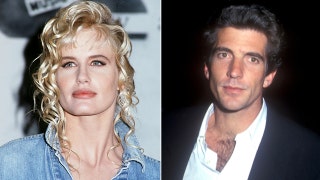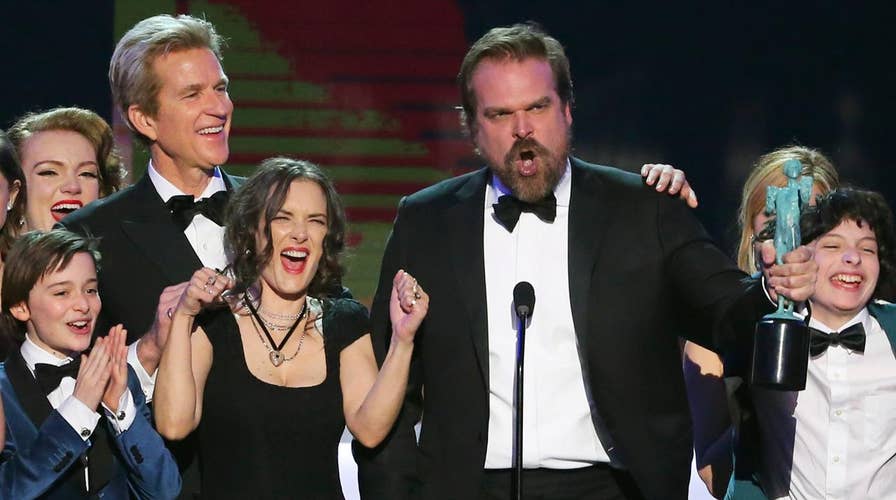President Trump’s controversial travel and immigration restrictions have some in the entertainment industry scrambling to figure out how their work in the United States might be impacted.
Iranian-born Swedish actress Bahar Pars hopes to travel to the U.S. for the Oscars despite the new restrictions. She stars in “A Man Called Ove,” which is nominated for an Academy Award.
“I don’t know,” she told Fox News of her travel plans. She said she hopes to come for the ceremony on Feb. 26, but is not sure if she can with the current restrictions. “I have a Swedish passport. I’m Swedish, too and I have a Visa. I was already there in October with ‘Ove.’ So, I hope I get in.”
The Swedish government said on Wednesday that dual citizens of Sweden and one of the seven affected countries will still be able to travel to the U.S. But Pars is not the only entertainer confused by the new restrictions.
According to multiple media reports, Iranian entertainer Googoosh is no longer planning to come to the U.S. for an upcoming February concert after her lawyer advised her that she would be blocked from entering the country.
And immigration lawyer Michael Wildes said other entertainers are also being impacted.
“The executive order effectively stopped models and [actors and actresses] coming from those corridors of the world,” said the managing partner at Wildes & Weinberg P.C. “This has a grave impact on many of our clients in the entertainment and modeling industry… Some of the biggest titans in industry will not be let in.”
The executive order Trump issued Friday imposes a 120-day suspension of the U.S. refugee program and a 90-day ban on travel to the United States by citizens of Iraq, Syria, Iran, Sudan, Libya, Somalia and Yemen.
Former Assistant United States Attorney Benjamin Cheeks said Trump’s administration has outlined certain exemptions to the travel restrictions, but those may not help actors or models.
“Those who were exempt include ‘those foreign nationals traveling on diplomatic visas, North Atlantic Treaty Organization visas, C-2 visas for travel to the United Nations, and G-1, G-2, G-3, and G-4 visas.’ None of these exemptions seem to apply to models and [actors and actresses] traveling in and out of the U.S. However, if they have a valid green card, they will probably be able to continue working in the U.S., assuming they are not a refugee of any kind. They should be prepared to be screened heavily though,” he said.
But Dan Gainor, vice president of business and culture at the Media Research Center, warned Hollywood should not overreact to the ban.
“… The only reason this is a Hollywood cause is because the movie/TV industry is reflexively left wing in everything it does," he said. "And they don't grasp that their fans are not.”
Cheeks speculated the current restrictions may ease up due to the backlash Trump has faced.
“The situation is indeed fluid and changing as the administration reacts to criticisms and protests, crafting and remolding their initial rollout to soothe the real-time reaction,” he said. “These executive action, and others, have revealed how deeply divided the country is, with Trump supporters happy that he is delivering on campaign promises, and others vocalizing their belief that his policies are un-American.”















































